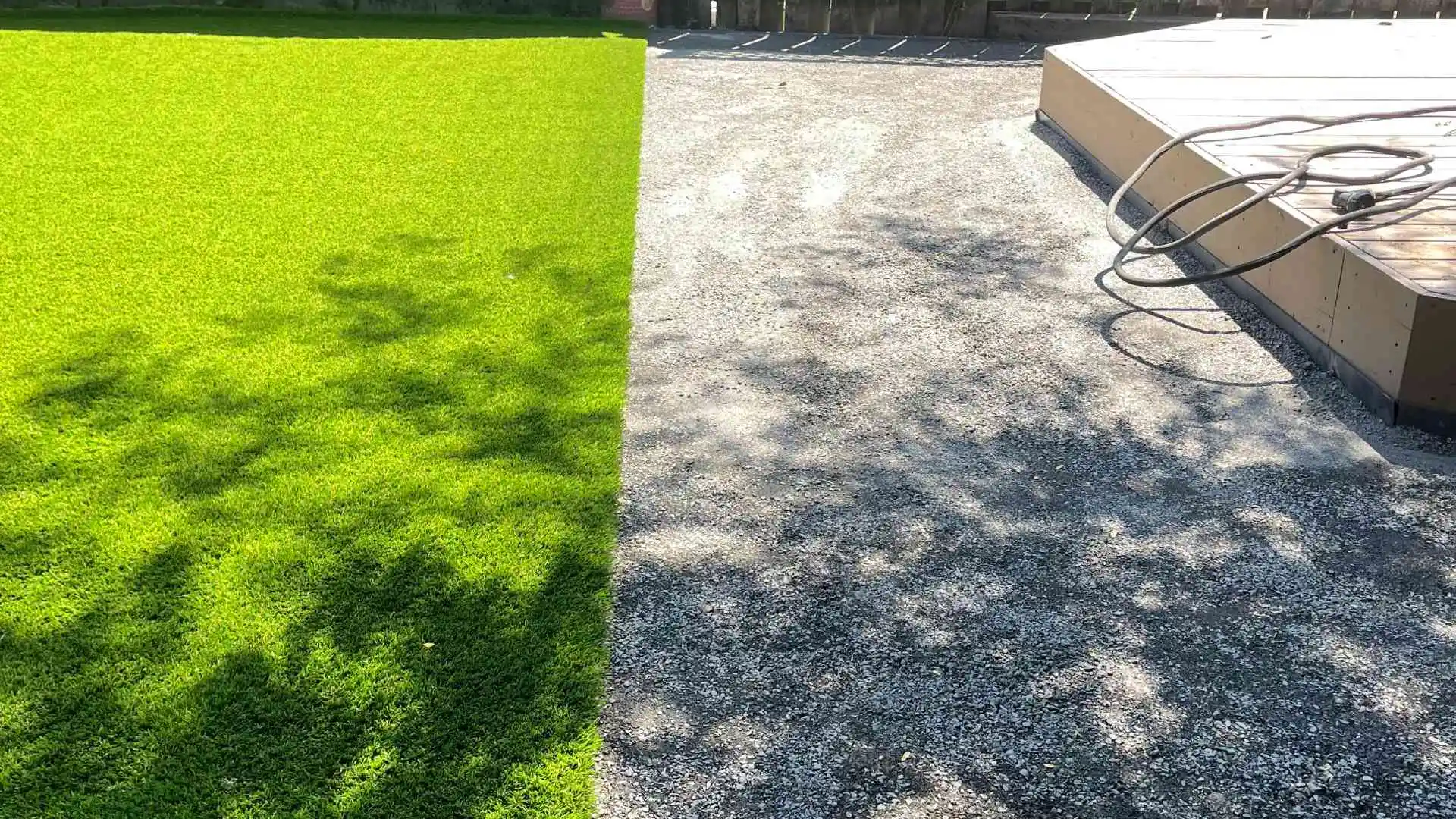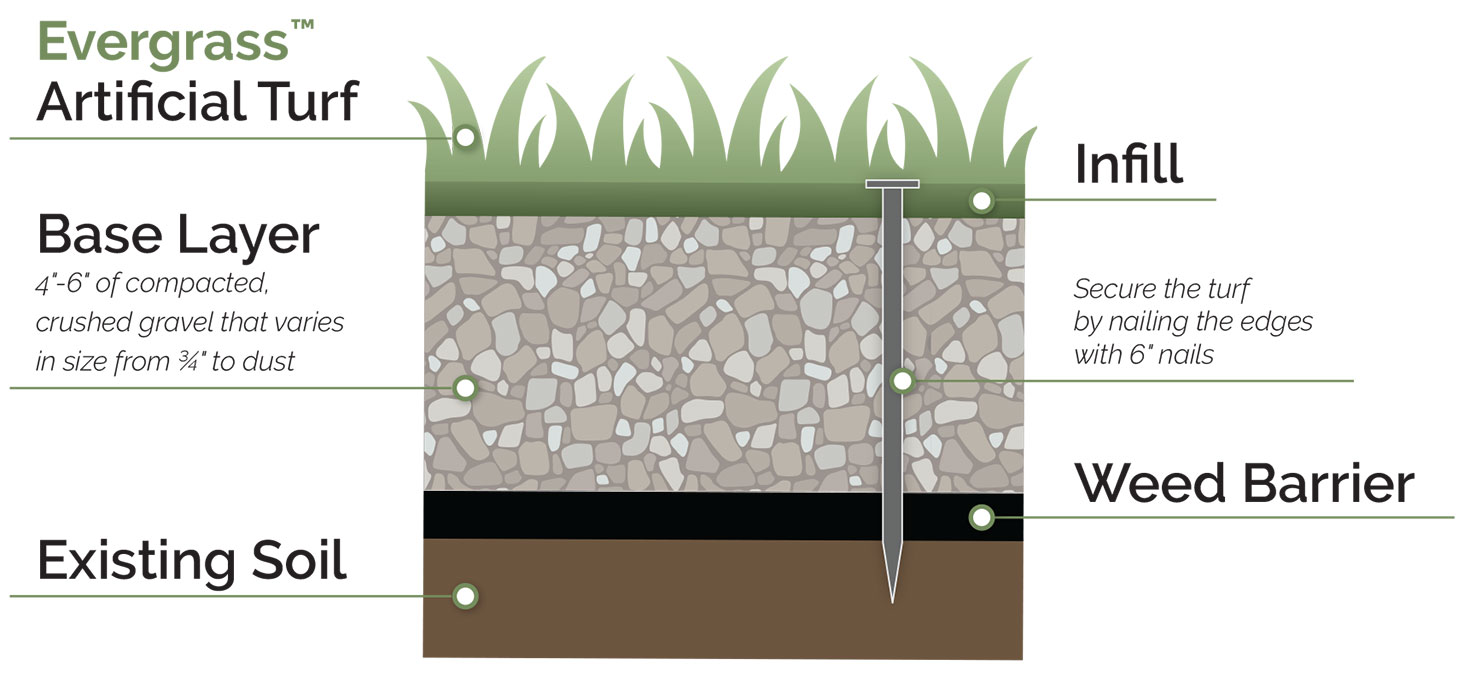Top-Rated Turf Installation Canoga Park Companies for Homeowners
Top-Rated Turf Installation Canoga Park Companies for Homeowners
Blog Article
Leading Factors to Consider Artificial Grass for a Low-Maintenance and lavish Backyard
As property owners progressively look for sustainable remedies for outdoor rooms, synthetic lawn offers an attractive option to traditional lawns. Its capacity to keep a lively appearance year-round without the concerns of watering, mowing, or chemical treatments makes it a functional option for those intending to reduce maintenance initiatives. Moreover, the environmental benefits, including significant water preservation and decreased reliance on chemicals, straighten with modern ecological worths. The advantages extend past plain aesthetic appeals and sustainability; discovering the complex ramifications of synthetic grass reveals an extensive approach to yard monitoring that advantages much deeper factor to consider.
Year-Round Plant
One of the most significant advantages of fabricated turf is its capability to give year-round plant, no matter of climate conditions. Homeowners typically face obstacles in preserving a vivid lawn because of seasonal adjustments, droughts, or hefty rains. Fabricated lawn gets rid of these issues, ensuring a regularly lush appearance throughout the year.
This synthetic alternative is engineered to hold up against different climate circumstances, from blistering summer heat to cold wintertime temperature levels. Unlike natural lawn, which may brown or become uneven during severe conditions, fabricated turf keeps its vibrant shade and appearance, enhancing the aesthetic charm of any landscape.
Additionally, synthetic yard is immune to pests and diseases that generally affect all-natural grass. This durability adds to its long-lasting elegance, as there is no need for chemical treatments or plant foods that can be hazardous to the setting. Home owners can take pleasure in the visual benefits of a well-maintained yard without the cyclical difficulties positioned by natural grass treatment.
Reduced Upkeep Efforts
Fabricated turf considerably reduces upkeep efforts, allowing house owners to delight in a beautiful grass without the taxing jobs linked with natural grass care. One of one of the most noteworthy advantages of synthetic turf is the removal of normal mowing. Without any requirement for a lawnmower, home owners conserve both time and the expense of maintenance connected with this equipment.

Cleaning man-made yard is uncomplicated; a basic rinse with a tube or the occasional brushing to get rid of debris is generally enough - artificial grass canoga park. This convenience of treatment permits home owners to invest more time appreciating their exterior rooms instead of struggling over them. In recap, the reduced maintenance initiatives associated with man-made grass make it an appealing option for those seeking an attractive, hassle-free yard
Water Conservation Conveniences
The significant reduction in upkeep initiatives connected with man-made lawn reaches water conservation, making it an eco-friendly option for property owners. Standard lawns call for considerable amounts of water to continue to be vibrant and rich, often causing too much water use, especially in deserts. In comparison, fabricated grass removes the demand for regular watering, considerably minimizing the overall water consumption in your yard.
By choosing artificial lawn, home owners can conserve thousands of gallons of water every year. This shift not just benefits private families yet also contributes to broader ecological initiatives aimed at decreasing water waste. In areas experiencing water shortage, the adoption of man-made grass can play a substantial function in alleviating the impacts of dry spell and ensuring that important water sources are made use of more effectively.
In addition, the setup of synthetic yard can aid reduced municipal water need, benefiting the neighborhood in its entirety. With expanding understanding of ecological concerns, choosing artificial lawn functions as a proactive action towards lasting landscape design, helping to maintain natural water sources while keeping a cosmetically pleasing exterior space (artificial grass installation). In recap, man-made turf provides a compelling solution for water conservation, straightening environmental obligation with modern-day landscape design needs

Parasite and Allergy Reduction
A substantial advantage of mounting synthetic lawn is its ability to decrease parasites and irritants in outside spaces. Typical yard yards commonly work as reproducing premises for bugs such as insects, ticks, and ants, which can create discomfort and health and wellness threats for family pets and households. check my source In contrast, artificial yard removes the natural material that attracts these pests, thus substantially reducing their populations in your yard.
Additionally, all-natural turf can harbor mold and mildew, plant pollen, and other irritants, which can cause allergic reactions and respiratory system problems for delicate individuals. Synthetic grass gives a cleaner atmosphere, minimizing the potential for allergenic reactions. Unlike natural lawn, artificial lawn does not generate plant pollen, making it an exceptional option for allergy patients seeking to enjoy their outdoor rooms without the threat of flare-ups.
Additionally, the absence of dirt in synthetic grass suggests there is less dust and dirt, additional lessening airborne irritants. This low-maintenance alternative not only improves the visual appeal of your lawn yet also advertises a much healthier outdoor environment, enabling households to appreciate their lawns without the continuous concern of irritants and insects. Therefore, synthetic yard is a tactical choice for those prioritizing comfort and health and wellness in their outdoor living areas.
Long-Term Cost Financial Savings
Purchasing artificial lawn can bring about significant lasting price financial savings for homeowners. While the initial investment might seem considerable, the economic benefits gradually can be significant. Man-made lawn removes the demand for routine lawn upkeep expenses, such as mowing, feeding, and watering. Standard yards usually require considerable resources to preserve a rich look, specifically in locations vulnerable to drought or extreme climate condition.
Moreover, the long life of synthetic lawn better enhances its cost-effectiveness. Most high-quality synthetic grass products can last 15 to 25 years with minimal maintenance, decreasing the demand for replacement or substantial repair services. In comparison, all-natural grass might need constant reseeding and routine treatment, which can swiftly build up in prices.
Utility financial savings are an additional critical factor. Homeowners can expect to see reduced water costs, as synthetic lawn does not require irrigation. Additionally, the decrease in grass treatment services can liberate valuable time and resources, allowing property owners to assign their budgets in other places.
Conclusion
In summary, synthetic grass provides numerous benefits for property owners looking for a vivid and low-maintenance landscape. Ultimately, the long-term expense savings connected with fabricated turf strengthen its standing as a lasting and functional option for boosting outside rooms.
Fabricated lawn considerably lowers maintenance efforts, enabling house owners to take pleasure in an excellent grass without the time-consuming jobs connected with natural grass care.The significant reduction in maintenance efforts connected with man-made lawn expands to water conservation, making it an ecologically pleasant option for property owners. In comparison, her response synthetic turf gets rid of the need for regular watering, dramatically reducing the overall water intake in your backyard.
In areas experiencing water shortage, the fostering of artificial turf can play a substantial role in reducing the impacts of dry look at this site spell and making sure that useful water sources are made use of much more efficiently.
With growing understanding of ecological concerns, choosing synthetic yard offers as a proactive action in the direction of sustainable landscaping, helping to protect all-natural water resources while maintaining a cosmetically pleasing exterior space.
Report this page